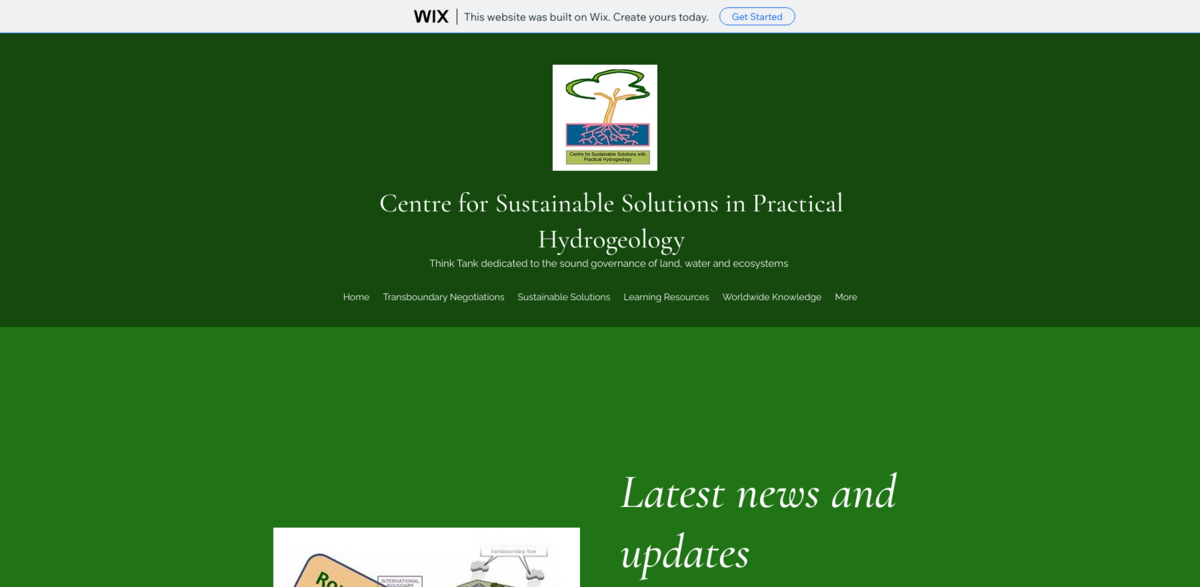What the Project Is About
The Centre for Sustainable Solutions in Practical Hydrogeology is an independent non-profit think tank dedicated to the sound governance of land, water, and ecosystems. This project brings together a diverse mix of practitioners and advisors who are passionate about delivering pragmatic solutions at the interface between land, water, and ecosystem biodiversity. Emphasizing practical hydrogeology, the Centre aims to foster greater understanding and better decision-making in the fields of sustainable management and environmental conservation. In a casual yet purposeful tone, this approach combines serious scientific practice with an engaging, almost conversational, commitment to long-term resource planning and environmental stewardship.
Main Benefits
A range of key benefits can be observed from the Centre’s various initiatives. These highlights serve as clear indicators of how the project is already making an impact:
- Comprehensive engagement of practitioners and advisors from diverse backgrounds.
- Interactive sessions such as Round 2 of the negotiation game-based simulation, which demonstrates transboundary negotiation skills.
- Focus on sound governance through the practical application of hydrogeology.
- Access to worldwide knowledge, learning resources, and contact with relevant organisations & institutions.
- A clear commitment to sustainable solutions that prioritize the balance between land, water, and ecosystem biodiversity.
Transboundary Negotiation Initiative
An innovative aspect of the project is its dedication to tackling transboundary challenges. Case in point: the Round 2 of the game-based simulation of negotiation over a transboundary river-aquifer. This vibrant exercise illustrates how various stakeholders can navigate complex negotiations over shared natural resources. The simulation has generated enthusiastic engagement from participants, who appreciate the dynamic, interactive experience that is neither dry nor overly technical—the conversational pace, the brief pauses indicated by ellipsis (…), and the friendly tone all contribute to a memorable event. For those who might have missed the 1st webinar, a video of the event is now available, ensuring that everyone can catch up on this innovative learning opportunity.
Practical Hydrogeology in Action
A notable undertaking within the Centre’s portfolio is the ambitious planning and execution of drilling projects. One such highlight is drilling to 1500m for aquifer long-term resource planning and investment in the southern desert of Jordan. This project embodies the very essence of practical hydrogeology—an exciting blend of rigorous scientific methods with practical implementation. The undertaking is a testament to the Centre’s commitment to sustainable development, and it brings technical expertise directly to the fore in an engaging and easy-to-understand manner. The description of this project speaks volumes about the ability to combine robust scientific rigour with the innovation required to solve real-world water challenges.
Worldwide Knowledge and Sustainable Solutions
The Centre’s extensive network not only provides a platform for deep scientific inquiry but also connects users to a wide range of learning resources, organisations, and institutions. This interconnectedness helps foster sustainable solutions across global landscapes. The engaging content available – from home pages to detailed resource sections – encourages a casual dive into the world of land, water, and ecosystem governance. Here, each element of the website, such as the “Transboundary Negotiations” or “Sustainable Solutions” sections, is designed to support both professionals and interested community members alike. The content is structured in a way that is both informative and accessible, ensuring that practical hydrogeology becomes a shared language for all.
Learning, Practitioners, and Advisors
The Centre’s initiatives also shine a spotlight on the power of learning and the influential role played by practitioners and advisors. With a focus on continuous education, webinars, and discussion events, the think tank ensures that current and emerging challenges are met with informed strategies. The collaborative nature of these efforts means that hearing from multiple experts and across different sectors is not only welcomed but actively promoted. This initiative has been well-received by those seeking cutting-edge insights, and its interactive approach, complete with engaging pauses and accessible language, resonates with audiences both new to hydrogeology and seasoned in the field.
Project Impact on Sustainable Development Goals
- SDG 6: Clean Water and Sanitation – Emphasising resource planning and sustainable water management.
- SDG 11: Sustainable Cities and Communities – Promoting the integration of land-use and water strategies.
- SDG 13: Climate Action – Enhancing adaptive strategies through innovative negotiations and informed policies.
- SDG 15: Life on Land – Supporting the governance of land and ecosystem biodiversity.
- SDG 17: Partnerships for the Goals – Building integrative networks among practitioners, advisors, and institutions worldwide.
Engaging Community and Organisational Growth
The Centre for Sustainable Solutions in Practical Hydrogeology extends beyond conventional academic inquiry into an engaging, multifaceted dialogue with communities and organizations. Featuring an easy-to-navigate structure that includes sections like Home, About Us, and Contact Us, the project ensures that knowledge is shared in a format that is as accessible as it is in-depth. This design not only streamlines information delivery but also inspires a sense of participation and empowerment among its audience. The integration of updates, event recordings, and thoughtful conversation pieces underlines the Centre’s standing as a hub where practical hydrogeology meets real-world applications, ensuring that the promising future of sustainable water governance is built on informed collaboration and interactive learning.


















